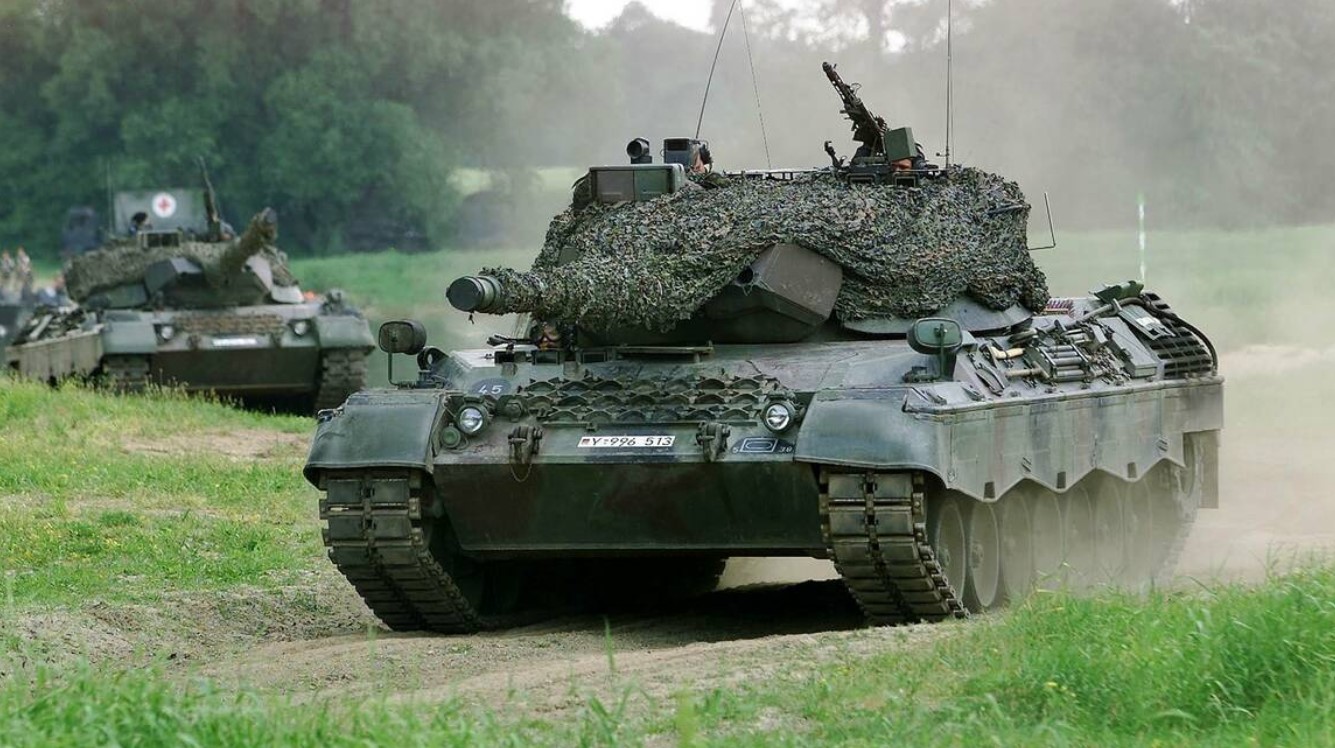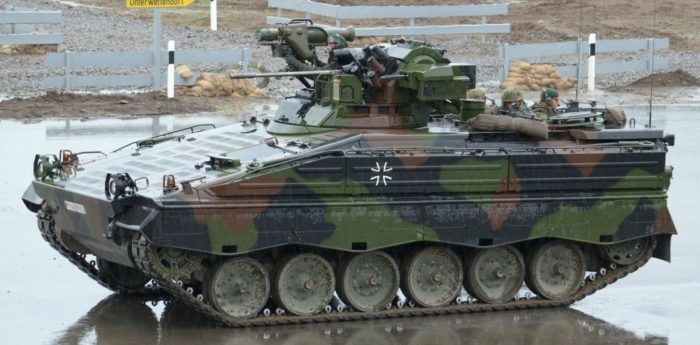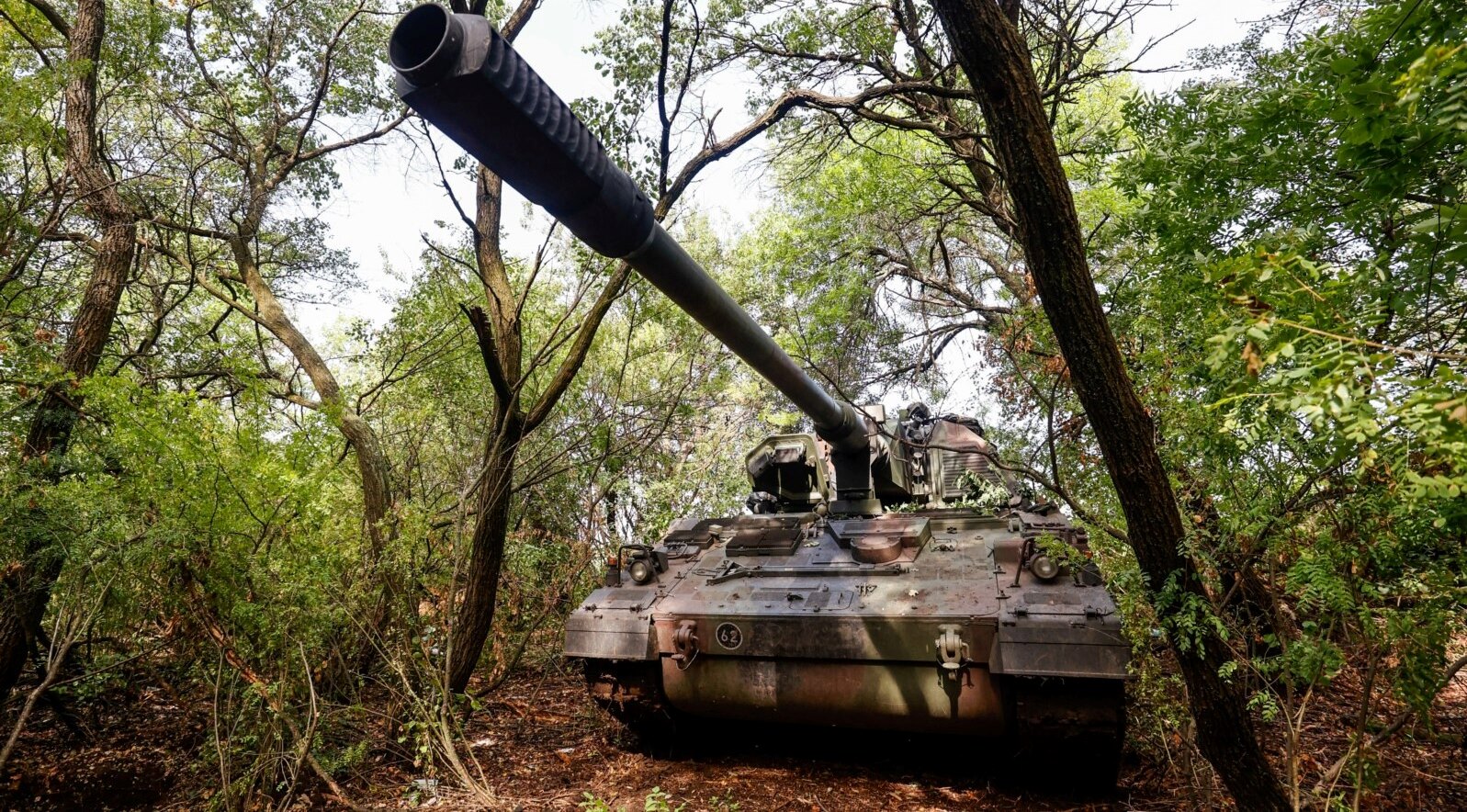This article was translated and adapted from a publication on Ekonomichna Pravda
The number of orders for Rheinmetall corporation, the largest German arms manufacturer, has grown by nearly 50%—from €26 billion to €38 billion—since Russia attacked Ukraine in 2022.
As Western countries boost their defense capabilities in the face of new threats from Russia and dictatorships worldwide, Rheinmetall’s production lines never stop issuing armored vehicles, artillery, ammunition, and air defense systems. Rheinmetall, which is investing in factories across Europe, announced in March 2023 that it would also set up facilities in Ukraine.
Recently, the German defense corporation opened the first joint production plant with Ukrainian state-owned defense enterprise Ukroboronprom in Ukraine—a workshop for the repair and production of armored vehicles.
According to Rheinmetall CEO Armin Papperger, another three factories will be launched soon. They will produce shells, military vehicles, gunpowder, and anti-aircraft weapons.
Why are Rheinmetall's investments in Ukraine considerable?
According to SIPRI, Ukraine is the third-largest arms importer in the world. Its labor market is cheaper than in EU countries, and its post-Soviet production base is rich. These factors make Ukraine attractive to Rheinmetall Corporation.
In its presentation to investors
, the company’s management openly states its goal to become the "number one option for the Ukrainian army." Currently, the country forces are using Rheinmetall’s Marder vehicles and Leopard tanks, shooting down "Shaheds" drones with 35mm ammunition and destroying Russian positions with Panzerhaubitze 2000 and German 155mm shells.
In addition to supplying equipment and ammunition to the Ukrainian Army, the corporation plans to supply equipment to its allies and replenish the depleted stocks of Western countries.
Rheinmetall's CEO, Armin Papperger, estimates that the production in Ukraine may bring the company $2-3 billion annually.

Today, the defense giant produces electronics, armored vehicles, ammunition, and military systems for Germany, Canada, the US, Austria, Spain, and Hungary. It manufactures Boxer, Lynx, and Fuchs combat vehicles, the Panzerhaubitze 2000 self-propelled artillery systems, and fuselages for F-35 fighters. Its enterprises produce a wide range of ammunition for various types of weapons for the Netherlands, Denmark, the US, Algeria, Indonesia, Australia, Saudi Arabia, South Africa, and others. In the future, Ukraine can become a vital center for the company’s exports.
How do Rheinmetall's facilities impact Ukraine’s state defense industry?
Establishing a German plant signals to other defense enterprises to strengthen their partnerships with Ukraine. It has also accelerated the corporatization of the former state conglomerate Ukroboronprom. In 2023, the government began transforming it into a joint stock company under a new name—the Ukrainian Defence Industry.
This step means more investments in Ukraine’s economy and foreign technologies, mechanisms, and tools for its defense enterprises, which have been devastated by Russian aggression. The Ukrainian Defence Industry manufactures ammunition and military hardware and employs 54,000 workers.
This allows Ukraine to learn corporate governance standards under the supervision of non-governmental organizations.
What types of ammunition will be produced at Rheinmetall’s ammo plant?
The arms company has announced the opening of a production and repair facility for air defense systems, an armored vehicle assembly and repair factory, and an ammunition plant in Ukraine. According to Rheinmetall, their personnel are now being trained in Germany.
The most significant of the new facilities will be the ammunition production plant, where Rheinmetall plans to produce a "six-figure" quantity of projectiles annually. Powder charges, a critical component for ammo, will also be manufactured in Ukraine. Currently, no enterprises in Ukraine produce 155-millimeter shells and their powder charges.
"Negotiations are currently underway to establish joint ventures and procure equipment. Following this, equipment production, plant construction, infrastructure development, and finally, ammunition manufacturing will commence. Typically, such projects take three to four years to complete, but we will aim to expedite the process," Deputy Minister of Strategic Industries Serhii Boiev explained.
Once operational, the plant will enable the Defense Ministry to contract tens of thousands of shells domestically, reducing the need for imports.
When will the air defense systems plant be launched?
The factory project for air defense systems is under development. Rheinmetall CEO Armin Papperger said it is expected to become operational within one to two years. Its services may involve the repair and production of 35mm Skyranger and Skynex anti-aircraft systems, which the Ukrainian forces use against Russia’s targets.
Skynex belongs to the category of short-range air defense systems similar to the German self-propelled Gepard anti-aircraft guns. Its primary armament is the 35mm automatic cannon Oerlikon Mk3, capable of firing effectively up to 4000 meters with a rate of fire of 1000 rounds per minute. The gun module has an X-band tracking radar that provides autonomous target search capabilities.

The system is capable of destroying swarms of aerial drones following the test that showed Skynex downing eight small unmanned aerial vehicles. It utilizes programmable 35mm AHEAD ammunition, developed by Rheinmetall, which is significantly cheaper than SAM systems with guided missiles. According to RBC, these ammo types are not affected by electronic countermeasures upon firing.
What types of weapons will be repaired at the armored vehicles factory?
Rheinmetall's armored vehicles enterprise at Ukroboronprom's facilities is already operational. In June, a German workshop for the repair of Marder armored vehicles and Leopard 1 tanks was opened.

Additionally, this facility can produce Fuchs armored personnel carriers and Lynx infantry fighting vehicles. The production of these arms is especially promising. The Fuchs has been in production since the Cold War, while the Lynx is a new model adopted only by Hungary so far. It was introduced by Rheinmetall in 2018, as per Handelsblatt.
Its primary armament includes a LANCE turret with a 30- or 35-mm cannon and an anti-tank missile launcher, which can be equipped according to customer requirements. The vehicle can transport a crew of nine soldiers, as per Militarnyi.
This infantry fighting vehicle is protected against 30-mm rounds in the frontal projection and 14.5-mm rounds on the sides. The vehicle’s underside is designed to withstand explosions equivalent to ten kg of TNT. It is powered by a Liebherr D9612 engine, allowing it to reach up to 70 km per hour with a range of 500 km on roads.
Deputy Minister of Strategic Industries Serhii Boiev says the Ukrainian plant will use imported parts for the initial assembly of vehicles.
Manufacturing of regional modified models with Ukrainian equipment can be launched in the future.
"The depth of localization depends on Ukraine's capabilities and the Germans' readiness to share critical technologies. The deeper the localization, the cheaper the equipment will be. The cost difference between vehicles assembled from imported components and those fully manufactured in Ukraine can be up to two times," Boiev noted.
Currently, Ukraine faces challenges in funding such prototypes. German armored vehicles are quite expensive. Based on the Hungarian contract, Lynx vehicles can cost up to 9 million each.
The Ukrainian Forces need new Lynxs, but ordering batches of these vehicles could be very costly for the national budget. The Minister for Strategic Industries, Oleksandr Kamyshin, says the German government plans to finance the production of Lynx. Similarly, German investors are funding vehicle repairs at the plant.
Rheinmetall says it plans to deliver the first new vehicles to the Ukrainian army in 2024. Preparations are ongoing, but no exact date has been announced for security reasons.
Related:
- German manufacturer Rheinmetall to produce Lynx infantry fighting vehicles in Ukraine
- First joint Rheinmetall-Ukroboronprom armor production site operational in Ukraine
- German Rheinmetall plans to produce ammunition in Ukraine
- Reuters: Germany plans to order additional 200,000 artillery shells from Rheinmetall
- Rheinmetall sending prototypes of 100km shells to Ukraine

